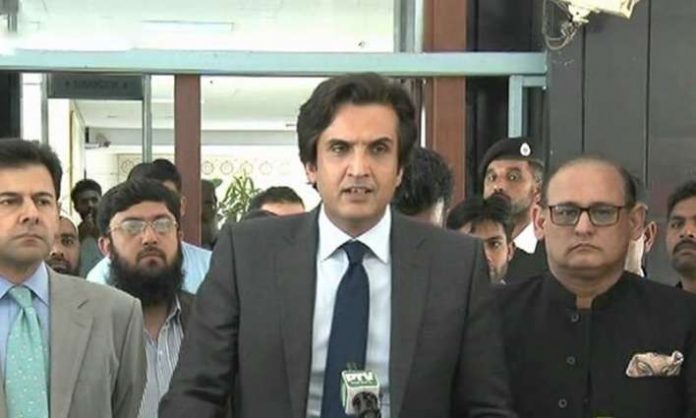- Planning minister says core objective of 12th five-year plan is to create 10 million jobs and enhance the sustainability of economic growth
ISLAMABAD: Planning, Development and Reform Minister Makhdoom Khusro Bakhtiar said on Wednesday that the previous government missed all targets set in its 11th five-year plan and their performance remained off-track during the period.
Talking to a group of journalists after chairing a meeting to review the 12th Five-Year Plan in Islamabad, Bakhtiar said after a detailed review of performance indicators of 11th five-year plan (2013-18), it was revealed that targets of the plan were not achieved, adding that credibility of the growth performance of the previous five years was also under scrutiny of the credible economists.
“The average real Gross Domestic Product (GDP) growth of 4.8pc during the plan masked many inequalities. For example, the crop sector, which employs 38pc of labour force, grew marginally by 0.6pc in five years,” he deplored. “The 5.8pc growth in 2017-18 was based upon six months data and will be revised on the basis of full-year data.”
Another example, he said, was the large-scale manufacturing sector where growth was taken at 6.1pc (seven months). It will be revised downward to actual full-year growth of 5.2pc, he added.
“The consumption was artificially boosted to uplift economic growth through fiscal expansion and easy monetary policy,” he stated.
The minister said the quantum of consumption in Pakistan at 93pc of GDP was one of the highest among emerging economies whereas investment and savings were one of the lowest.
He said the total investment could not reach close to the target of 22.8pc of GDP and stood at 16.4pc, adding that the private investment rate continuously fell during the last four years in a row from 10.4pc of GDP in 2014-15 to just 9.8pc in 2017-18 when interest rates were at their lowest level.
Bakhtiar said public investment increased by 1.2 percentage points during the period to keep investment almost stable.
“National savings could not reach even at half the targeted level of 21.3pc and fell to 10.4pc. The fiscal deficit missed by 300 basis points from the target set at 3.5pc (Rs1,203 billion) and reached only 6.6pc (Rs2,260 billion) in the terminal year of the last plan period, 2017-18. Reckless borrowing increased the debt stock from Rs16 trillion to around Rs30 trillion and exerted enormous pressure on future generations. Expansion in current account deficit from 1.3pc of GDP ($3.13 billion) in 2013-14 to 6.1pc ($18.9 billion) of the terminal year was witnessed during the plan period,” he added.
Regarding targets for next five-year plan, Bakhtiar, who is also the minister for the Statistic Division, said that the government was cognizant of the fact that the 12th Five-Year Plan was presented in the backdrop of serious macroeconomic imbalances and a huge structural deficit.
The minister apprised about challenges to the economy such as regaining macroeconomic stability, fiscal consolidation; long-term sustainability of the external sector; creating employment and skill development; and poverty alleviation.
“Growth of the 11th five-year plan period strengthened the notion of economic growth without economic development. Thus, emphasis of macroeconomic policies of the government would be on building the fundamentals of the economy,” the minister stated.
He said the meetings concluded that macroeconomic imbalances of this magnitude could not be sustained for an indefinite period and a home-growth macroeconomic stabilization with a human face is needed at this moment.
The minister said that he also reviewed the targets for the 12th Five-Year Plan and advised the relevant sections to deliberate with sectoral experts to firm up these targets.
“Core objective of the plan is to create 10 million jobs in five years and enhance the sustainability of the economic growth through building fundamentals,” he added.
During these meetings, the minister was apprised that the macro framework would be finalized in consultation with the Ministry of Finance and the State bank of Pakistan. Provincial growth strategies are already incorporated in the national growth framework.
The minister directed to put in place an implementation plan and periodic monitoring mechanism for effective traction.
To a question, the minister said that he also wanted to make the Pakistan Bureau of Statistics (PBS) an autonomous body so that it could provide a real picture of the country’s economic data.
























